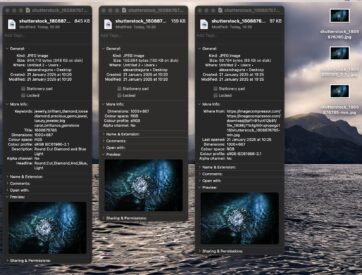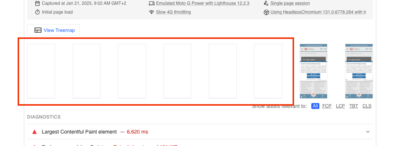We all know the feeling: you click on a page, and… it takes forever to load. For online shoppers, slow pages are more than annoying. There are a few actions that you take as a content manager, that hurt Magento page speed and cost conversions. Studies show that even a one-second delay can lower your sales and frustrate customers.
Developers can work their magic behind the scenes: optimizing code, streamlining scripts, and fine-tuning the server: but all that effort can go to waste if the content on your pages isn’t managed properly. Large images, unnecessary videos, and unoptimized widgets can undo hours of technical work. That’s why page speed isn’t just a developer’s problem, but a content manager’s responsibility too.
Here’s what you can do as a content manager to keep a good page speed score for your Magento shop.
Magento page speed tips: use optimised images
Big, heavy images are one of the main culprits slowing down your site. Use a website like: https://tinypng.com or https://imagecompressor.com/ to optimise your images before uploading them in the Magento admin.
- Desktop: keep images under 150 KB to ensure quick loading times.
- Mobile: aim for images under 100 KB to accommodate slower mobile connections.
Compressor gives you more control over quality vs. size.
Example: An original 845kb image can often be reduced to under 100kb without noticeable loss in quality.

Bonus tip: avoid GIFsand embedded videos. They tend to tank up speed and there’s nothing much you can do about it in Magento admin.
Magento page speed tips: use lazy loading wisely
Magento allows you to “lazy load” images, which means images load only when they’re visible on the screen.

The logic should be:
- Above-the-fold images (the first thing people see): Do not lazy load.
- Below-the-fold images: Yes, lazy load.
This simple setting can make a big difference in perceived loading speed.
Magento page speed tips: avoid adding 3rd party CSS or Javascript in the admin
Adding random scripts or styles in Magento’s admin panel seems convenient & fast, but it can hurt your page speed. Because third-party scripts are rarely optimized. If you need new functionality, it’s better to let a developer handle it.
Magento page speed tips: know when to call a developer
Some errors are outside a content manager’s control. If you see messages like:
- “Blank screens”

- “Too many resources on the website”
- “Largest Contentful Paint element” error
- “Avoid excessive DOM size”
…it’s time to reach out to your dev team.
Other errors, like “Reduce unused JavaScript” for GTM or Cookiebot scripts, are trickier. The only options are either live with them or stop using the platform. But if other optimizations are done, these won’t hurt your score as much.
Magento page speed tips: pay attention to marketing scripts
Each time you are implementing a new feature, assess if you actually need it. Ask yourself: do we really need all of these on every page? Sometimes less is more.
Page speed matters, and even small changes can make a big difference. A fast page isn’t just a technical achievement, it’s a better experience for your customers. And that’s the ultimate win.
